Project Overview
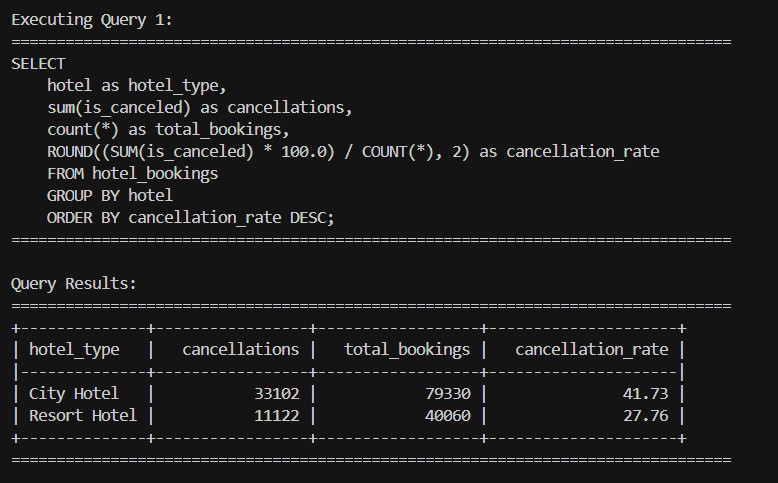
Hotel Type Cancellation Analysis - City hotels show 41.73% cancellation rate vs 27.76% for Resort hotels
A comprehensive SQL-based business analytics project that explores hotel booking trends and provides valuable insights for hotel management and revenue optimization. This project uses the Hotel Booking Demand Dataset from Kaggle to uncover patterns, trends, and insights that can help hotel managers make data-driven decisions.
The analysis covers various aspects of hotel bookings including cancellation rates, revenue analysis, customer behavior, and booking patterns to provide actionable business intelligence.
🛠️ Technical Implementation
The project is built using PostgreSQL for database management, Python for data loading and query execution, SQL for data analysis and insights, and Environment Variables for secure database configuration.
📊 Key Analysis Questions & Insights
1. Hotel Type Cancellation Analysis
Question: What's the cancellation rate for each hotel type?
Results: City hotels show a higher cancellation rate (approximately 41.73%) compared to Resort hotels (approximately 27.76%).
Insights: Understanding which hotel types experience higher cancellation rates helps in implementing targeted retention strategies. City hotels may need more aggressive retention policies.
2. Monthly Booking Trends
Question: Which months see the most bookings?
Results: August and July are the peak booking months, with significantly higher booking volumes compared to other months.
Insights: Identifying peak booking months helps in resource allocation and pricing strategy. Hotels should prepare for increased demand during summer months.
3. Revenue Loss Analysis
Question: What's the revenue lost due to cancellations by hotel type?
Results: City hotels experience higher revenue loss from cancellations, with losses exceeding 5.8 million in the dataset period.
Insights: Quantifies the financial impact of cancellations and helps in revenue management. City hotels may need to implement stricter cancellation policies.
4. Distribution Channel Effectiveness
Question: Which distribution channels are most effective (least cancellations)?
Results: Corporate and Direct channels show lower cancellation rates compared to Online Travel Agents (OTA).
Insights: Guides marketing budget allocation and channel optimization. Consider increasing focus on corporate and direct booking channels.
5. Lead Time Impact
Question: Does a longer lead time increase the likelihood of cancellation?
Results: Bookings made more than 6 months in advance show significantly higher cancellation rates.
Insights: Helps in understanding booking window patterns and optimizing cancellation policies. Consider implementing stricter policies for very early bookings.
🎯 Business Impact
This analysis provides valuable insights for:
- Revenue Management - Optimizing pricing and revenue strategies
- Customer Retention - Implementing targeted retention policies
- Marketing Strategy - Focusing on more reliable booking channels
- Resource Allocation - Managing seasonal demand effectively
- Pricing Optimization - Dynamic pricing based on trends
- Market Segmentation - Tailoring strategies for different segments
📈 Key Visualizations
Below are key visualizations from the analysis showcasing booking trends, cancellation patterns, and revenue insights:
📊 Monthly Booking Trends
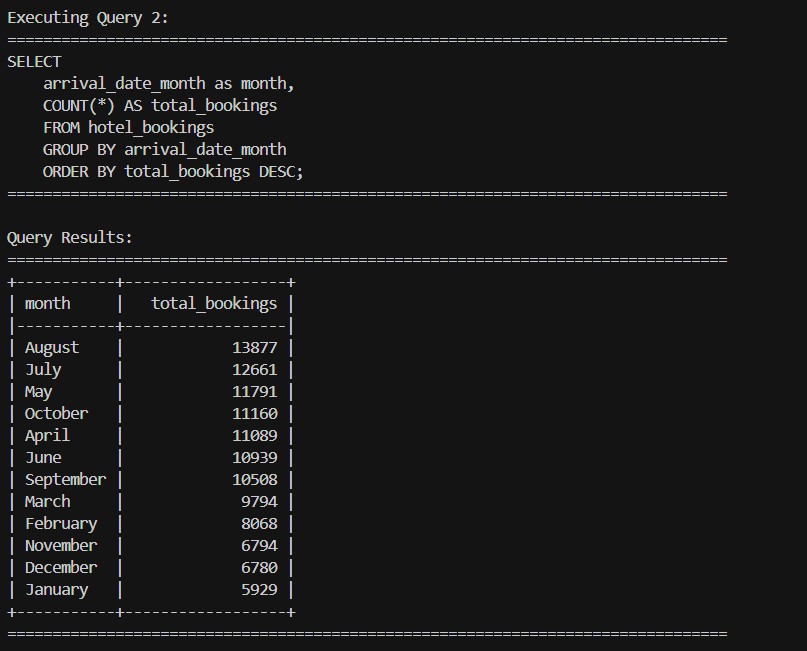
🌍 Country-wise Cancellation Analysis
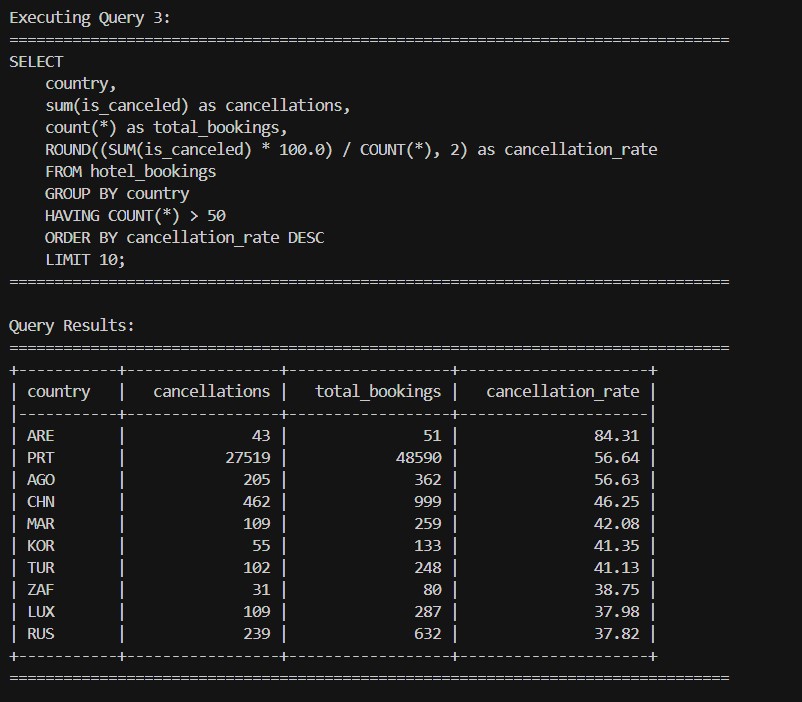
💰 Distribution Channel Effectiveness
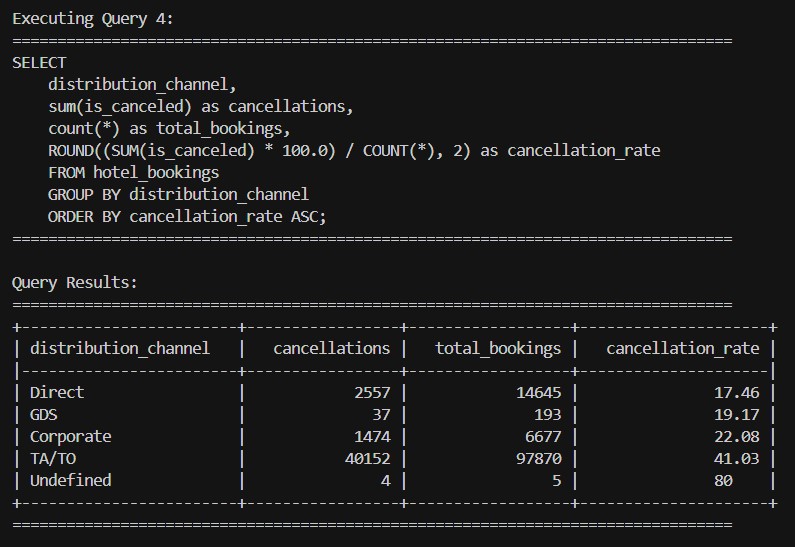
⏰ Lead Time Impact
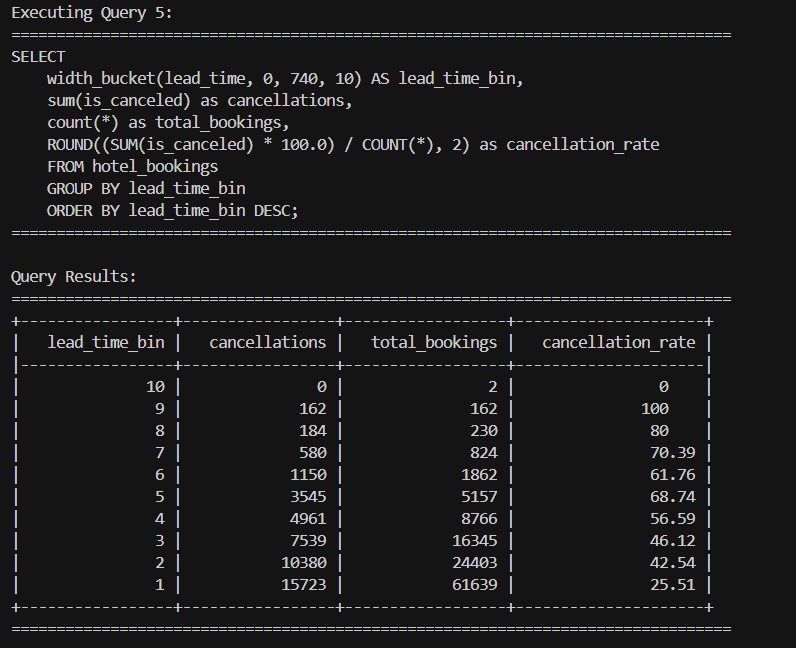
📝 Conclusion
This comprehensive analysis of hotel booking data reveals several critical insights for hotel management. The study shows that city hotels face higher cancellation rates and revenue loss compared to resort hotels, suggesting a need for different management strategies. Seasonal patterns are evident in both booking volumes and pricing, with summer months showing peak activity.
The analysis of distribution channels indicates that corporate and direct bookings are more reliable, while online travel agents show higher cancellation rates. Customer behavior analysis reveals that solo travelers and early bookings (more than 6 months in advance) have higher cancellation rates, suggesting the need for targeted policies.
These insights can guide hotels in implementing targeted cancellation policies, optimizing pricing strategies, focusing on more reliable booking channels, managing seasonal demand effectively, and developing segment-specific marketing strategies.